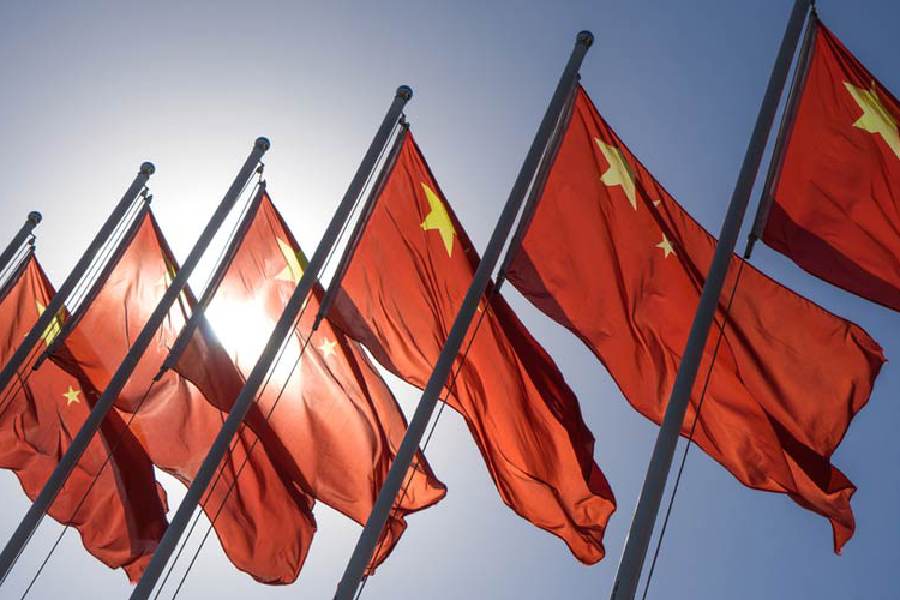In the 1980s, people in China could land themselves in trouble with the government for their fashion choices.
Flared pants and blue jeans were considered “weird attire”. Some government buildings barred men with long hair and women from wearing make-up and jewellery. Patrols organised by factories and schools cut flared pants and long hair with scissors.
It was the early days of China’s era of reform and opening up. The Communist Party was loosening its tight control over society, and the public was pushing the limits of self-expression and individualism. The battle over the height of women’s heels and the length of men’s hair embodied the struggle.
Now, the government is proposing amendments to a law that could result in detention and fines for “wearing clothing or bearing symbols in public that are detrimental to the spirit of the Chinese people and hurt the feelings of Chinese people”. What could be construed as an offence wasn’t specified.
The plan has been widely criticised, with Chinese legal scholars, journalists and businesspeople voicing their concerns over the past week. If it goes into effect, they argue, it could give authorities the power to police anything they dislike. It would be a big step backwards in the public’s relationship with the government.
“In Chinese history, the times when clothing and hairstyles were given significant attention often corresponded to ‘bad moments in history’”, someone using the name Zhang Sanfeng wrote on the social media platform WeChat. “The introduction of the amendments didn’t come from nothing. It’s a response to some strange sentiments emerging in our society.” The article was widely circulated before being purged by censors.
Under the rule of Chinese President Xi Jinping, the government has been fixated on control — how people think, what they say online and now, what they wear.
China has built a surveillance state with modern technologies, censoring the news media and social media, and even banning displays of tattoos and men wearing earrings on phones and TV screens. The ideological straitjacket is closing in on the private sphere. Personal sartorial choices are increasingly subject to the scrutiny of police or overzealous pedestrians.
In July, an older man on a bus berated a young woman, on her way to a cosplay exposition — where people dress up as characters from movies, books, TV shows and video games — for wearing a costume that could be considered Japanese style. A security guard at a shopping mall last month turned away a man who was dressed like a samurai. Last year, the police in the eastern city of Suzhou temporarily detained a woman for wearing a kimono.
These episodes were related to anti-Japanese sentiment instigated by the Chinese government. But the confrontations go beyond that.
Last month in Beijing, security guards cracking down on expressions of gay pride stopped people dressed in rainbow-themed clothes from entering a concert featuring Taiwanese singer Zhang Huimei, better known as A-Mei. Also in August, people filed complaints about a concert by Taiwanese singer Jolin Tsai because her fans displayed rainbow lights and some of the male fans dressed in what was described as “flamboyant” female clothing. This past week, police in Shenzhen scolded a man who was livestreaming in a miniskirt. “A man wearing a skirt in public, do you think you’re positive energy?!” the police yelled at the man.
If the proposed amendments, which are open to public comment until September 30, are approved by the national legislature, such incidents could result in fines of up to $680 and up to 15 days in police custody. The law could put China in the ranks of the most socially conservative countries.
“The morality police is on the verge of coming out,” a lawyer named Guo Hui wrote on Weibo. “Do you think you can still make fun of Iran and Afghanistan?” People posted photos last week of Iranian and Afghan women wearing miniskirts and other western clothes in the 1970s before their countries were taken over by autocratic rulers.
New York Times News Service










